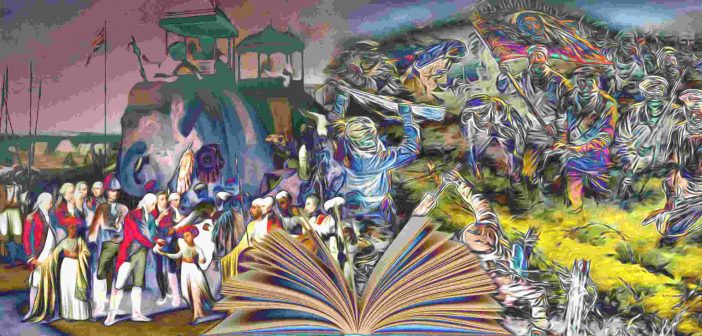The catastrophe of the modern age goes beyond what can be made explicit in a simple list; one needs to only look around to realize that we are living through a fatal period of human history.
Faced with the immediate threat of a global pandemic, destruction of the biosphere, and increased interpersonal and global violence, it is difficult not to ask: how did we get here?
The narrative of post-colonialism has deep-seated remains of imperial past for those living in South Asia and even across the world, culminating in a profound sense of concern for those who have lived and are living its consequences. This perturbation with our colonial past and ways to address it was central to the theme of the fourth Post-colonial Higher Education Conference (PHEC): Decolonial Thought in the Global Ruins. The conference was integral in highlighting how colonialism has and continues to seep into several domains of life, namely the biosphere, religion, politics and economics, shaping us in every way. The current global destruction constantly talked about in the news seemed to make this theme all the more befitting of these most unusual times. These discussions prompt us to dwell on this reality to attempt repairing ourselves, and the arduous tasks of repairing our world. Since lessons from the conference are of ongoing importance, here are five reasons post-colonialism matters to us:
1. The present is pregnant with the past
Our condition is contingent since the modern human being is a post-colonial subject whose fractured present is born out of a violent past. At Habib, the course ‘What is Modernity?’ is usually a student’s first encounter with this particular approach to history which revolutionizes the way we think about the world and our place in it. In the words of Jean-Baptiste Fressoz, it gives us “a new responsibility as human beings”.
We believe reparation stems from the ardour of revisiting history and coming to terms with the lingering psychological and material effects of our recent colonial and imperial past.
2. The entire world is postcolonial, not just former colonies
Too often the work of post-colonialism is deemed as only concerned with former colonies who are forced to come to terms with the damage of their colonial past.
But there are a host of countries that were damaged as much, if not more, than the former colonies.
Western domination on a global stage is no coincidence, it is a direct result of a post-colonial world whose ‘modern’ social, political, and economic reality is born out of a shared past.
3. It is an academic field but its concerns go beyond academia
While it is only through the study of postcolonialism that we can get a sense of how deeply modern life, art and culture are complicit in enforcing structures of power, colonial history has impacted almost every domain of our lives.
For example, growing up we seldom think that the work and biographies of the writers we read are distinctly western. With ‘Postcolonial Literature’, a course offered at Habib, literary voices seem to differ considerably across works coming from different parts of the world.
Critics such as Homi Bhaba and Edward Said helped cement how a simple activity such as reading becomes different in the context of post-colonialism.
4. Our sense of self is at stake
Studying post-colonial theory serves as a mean to decolonize not just thought but also our sense of self.
Confronting our colonial past means addressing the split which makes us up which manifests in the language we speak, the media we consume, and the demeanour we adopt, where we find colonial forces still at play working to keep us alienated from our own experience.
The work of decolonization is not just an intellectual task, it is a personal one. Coming to terms with our colonial past gives us a greater sense of the forces that have come to shape our identity.
5. This is the only means to reparative ends
Post-colonialism has the potential to re-shape our consciousness on a mass scale but it is not enough to simply acknowledge that we were once colonized. Recently we understood the meaning of ‘epistemicide’ as a sort of postcolonial resistance in the context of knowledge generation. Understanding conceptualizations such as this make us aware of a larger discourse that inarguably has been at play for a long time.
Studying post-colonialism provides us with the necessary tools to understand the world we inhabit. With looming catastrophes, we’re constantly confronted with alternate ways to seek a new world order – one that has yet to come into existence.
This requires a kind of self-reflection and self-awareness that can be only be brought about by deep introspection. After all, the task of repairing the world begins and ends with repairing ourselves.
By: Dalia Sattar (Class of 2024) and Nida Zehra (Class of 2019)




